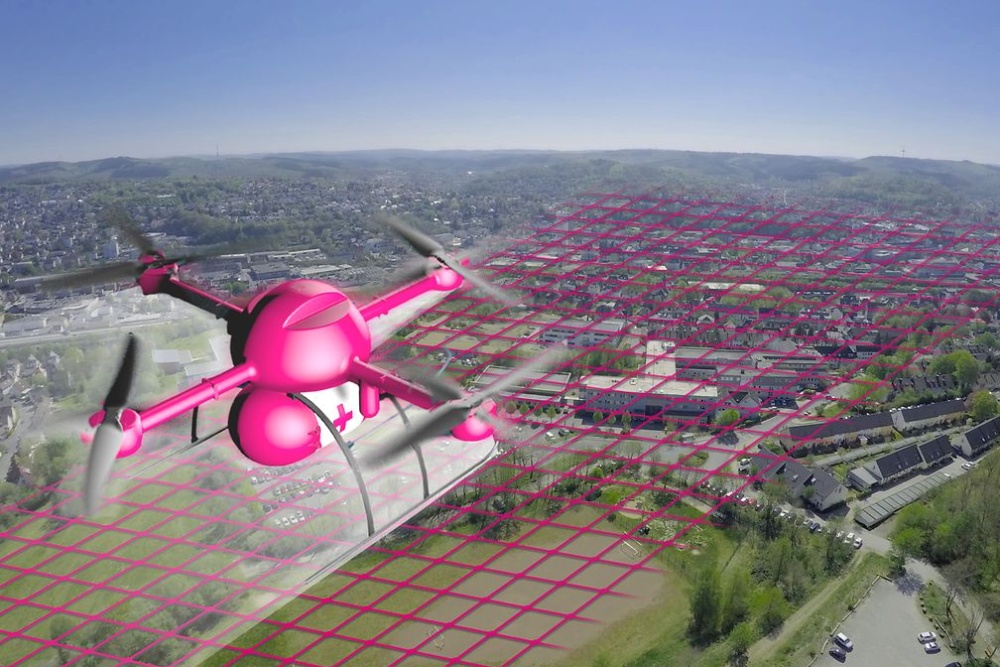
Deutsche Telekom (DT) has joined KODRONA, a co-operative project that is researching the use of drone technology for medical applications, in particular to speed up lab tests for sick children, reports mobileeurope.co.uk.
Working with the university city of Siegen, Deutsche Telekom (DT), as part of this research project, will provide a new type of campus network to control drones remotely, using 4G. The network will be available exclusively for communication between the craft and the control centre while enabling reliable data transmission even during temporary load peaks.
KODRONA is a pilot project in North Rhine-Westphalia that is investigating the use of drones in medical environments. The Federal Ministry of Transport and Digital Infrastructure has funded the first phase of the project, and already drones fly back and forth between the DRK children’s hospital and the district hospital in Siegen.
Samples from the young patients are regulatory flown across 2.5 km flight route to a central lab to speed the test results at a height of up to 80m. At present, the lab samples are transported several times a day by taxi.
Thomas Runge, Head of Economic Development of the City of Siegen, said, “Since the quality of the mobile phone coverage is decisive for the test operation, we carried out a real-time survey during the drone flight.”
And Hagen Rickmann, responsible for the Business Customers at Telekom Deutschland, explained, “To ensure that operators are able to fly the craft outside of their visual range, the drones transmit live images from a built-in camera to the control centre. This requires a high-performance network and low latency.” Adding, “A particularly fast reaction time of the communications network is essential for delay-free control.”
The campus network is implemented using the existing antennas and the product Campus-Netz M. This means that images and control commands are transmitted even faster and support the safe flight of the drones. The use of unmanned craft is included in a feasibility study, but the next stage comprises a test operation under real conditions.
This will examine the dependencies of drones’ deployment on the weather, integration into operational processes, and official communication interfaces, as well as cooperation with other parties. Subject to follow-up funding, trial operations will commence at the beginning of 2021.
For more information

